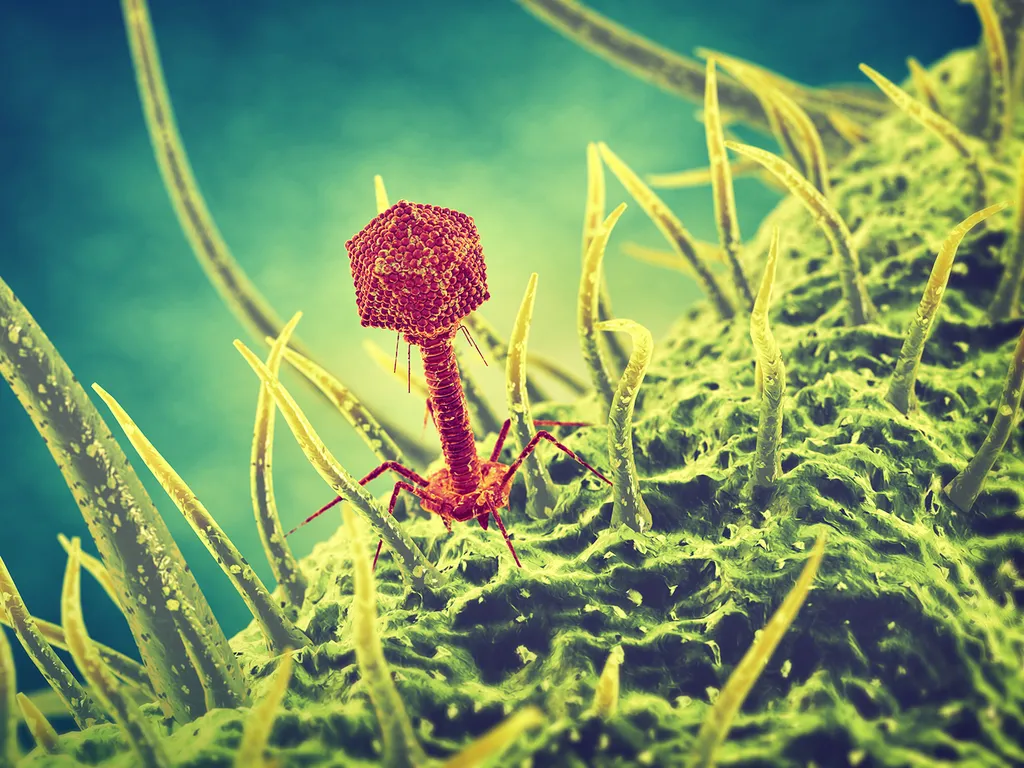In the ongoing battle against foodborne pathogens, researchers have discovered a potent new ally: a virulent bacteriophage named vB_VpaP_FR4. This phage, isolated from a fish pond during a vibriosis outbreak, shows promising potential as a biocontrol agent against Vibrio parahaemolyticus, a bacterium notorious for causing food poisoning. The study, published in *Shipin Kexue*, could pave the way for innovative solutions in food safety and agriculture.
Vibrio parahaemolyticus is a significant concern for the seafood industry, particularly for products like salmon, where contamination can lead to spoilage and health risks. The newly discovered phage, vB_VpaP_FR4, exhibits a high level of specificity and efficacy against this bacterium. According to the lead author, ZHU Bin, “Our findings indicate that vB_VpaP_FR4 can effectively reduce V. parahaemolyticus levels in fresh salmon slices stored at 4 ℃, bringing them below the detection limit within 72 hours.”
The phage’s biological properties make it a strong candidate for commercial applications. It forms transparent plaques, has a short latent period of just 5 minutes, and a burst size of 26 PFU/cell, indicating its rapid replication and high infectivity. Additionally, it remains viable across a wide range of temperatures (4–50 ℃) and pH levels (5–10), making it adaptable to various food processing and storage conditions.
One of the most compelling aspects of this research is its potential to enhance food safety without compromising product quality. The study found that treating salmon slices with vB_VpaP_FR4 did not affect their sensory quality, a crucial factor for consumer acceptance. This dual benefit of safety and quality preservation could revolutionize the way the agriculture and food industries approach pathogen control.
The implications for the agriculture sector are substantial. As ZHU Bin explains, “The use of bacteriophages like vB_VpaP_FR4 offers a targeted and environmentally friendly approach to controlling foodborne pathogens. This can reduce the reliance on chemical preservatives and antibiotics, which are increasingly scrutinized for their potential health and environmental impacts.”
The research team, affiliated with the College of Food Science at South China Agricultural University and other institutions, highlights the importance of further exploration and development of phage-based biocontrol agents. Their work suggests that vB_VpaP_FR4 could be a game-changer in the fight against V. parahaemolyticus, offering a sustainable and effective solution for the food industry.
As the agriculture sector continues to seek innovative ways to ensure food safety and quality, the discovery of vB_VpaP_FR4 represents a significant step forward. This research not only provides a new tool for combating foodborne pathogens but also opens up avenues for future developments in phage therapy and biocontrol strategies. The potential for commercial impact is immense, promising a safer and more sustainable future for the food industry.

